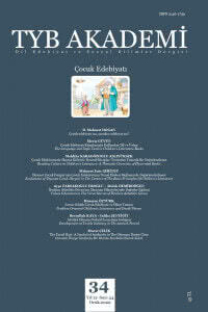Uluslararası Politikada Sivik Dinin Etkisi: İran Örneği
Antikiteden modern döneme kadar olan süreçte pek çok toplum 'sivik din' yorumu ile ulusal olanı pekiştirme, politik olanı meşrulaştırma yoluna gitmiştir. Yahudilik zaten bir sivik/ulusal din olarak doğduğu için, Hıristiyanlık ve İslâm'ın evrensel söyleminden sivik din yorumu ile kopan ve tikel/yerel olanı güçlendirme yoluna giden toplumlar, evrensellik-tikellik gerilimini ve buna bağlı olarak da meşruiyet bunalımını çok yoğun yaşamışlardır. Bizce bu gerilimi İslâm dünyasında en yoğun yaşayan ülke ise Şiî İran'dır. İran bu durumu her defasında dini ideolojileştirerek aşmaya çalışmıştır. Sasaniler döneminde Arap/Sünnî, Safevîler döneminde Osmanlı/Sünnî ve modern dönemde Batılı/Seküler üç meydan okumaya da apolojetik bir refleksle İran, dini ideolojileştirerek cevap üretmiştir. Bu dönemlerde Ebu Müslim Horasanî, Şah İsmail, Cemaleddin Afgânî- Ali ŞeriatîÂyetullâh Humeynî İran tarihinin dini ideolojileştiren sembol isimleri olarak karşımıza çıkmaktadır.Bu bağlamda çalışmamızda yukarıda genel ve soyut olarak aktardığımız çerçevede sivik dinin uluslararası politikadaki etkisi İran örneği üzerinden analiz edilecektir. Ayrıca Ortadoğu'da sivik-politik dine sahip olan İran ve İsrail'in çatışmacı bir dış politika paradigmasına sahip olmalarında bu yönün ne kadar etkili olduğu çözümlenmeye çalışılacaktır
The Impact of Civic Religion In International Politics: The Case of Iran
From the antiquity to modern time, lots of society had gone to the way to sodisfy the national and legitimate the politic ones with 'civic religion' comment. The Jewishness already was born as a civic/ national religion.the societies - splitted from the universal statement of Christianity and Islam by civic religion comment and went to way to beef up the particular/ local one - had lived the stress of universalized - particularity and therefore The crisis of legality , so intensive. The country which lives this stress in The İslam world is Shia Iran. Iran everytime tries to overcome this situation by taking the religion ideological. Sasanid term Arabic/Sunni, Safavid term Ottoman/Sunni, modern term Westerner/secular They had produced reply by taking the religion ideological by an apolegetic reflex to this three challenge. At these terms Abu Muslim Horasani, Shah Ismail, Jamaluddin Afhgani, Ali Sheraiti, Ayatollah Khomenei meet us as symbol names of taking the religion ideological. The civic religions which are blessing the social life and enclosed with the symbols and rituels, have always potential for transform to a political religion. Furthermore, If you come to think about the words - the civic (city) politic (polis) have the same meaning, there is a thin border between the civic and political religion. At international policy, as it is seen that political religions-secular or divine weldedhave a perception with power centered external policy and a clash language.In the present days of the Middle East, there are three countries have civic religion: Israel, Iran and Saudi Arabia. Israel and Iran are two unnormalized country of the region. However they seem opposite to each other, to have a civic- politic religion increases the similarity of external policy perception of this two country. Israel's theologic looking up psychology to itself and İran's civic- politic religion which causes theologic differentiation and emphasizes cultural superiority are The biggest interferences of normalization for both of this two country. To install the peace on middle east depends The normalization of this two country and the precondition of Turkey and Iran's together moving like Germany and France on European Union foundation. In this study we transfer the above context, the civic religion in general and in the abstract will be analyzed on the example of the Iranian influence in international politics. With civic-political religion in the Middle East, Iran and Israel in being with a confrontational foreign policy paradigm that tries to analyze how effective this direction
___
- Asl, Nasır Kashef. "İran İslâm Cumhuriyeti Dış Politikasının Oluşumunu Etkileyen Et- menler: Bir İranlı Görüşü", Ortadoğu Siyasetinde İran, Türel Yılmaz-Mehmet Şahin (eds), Ankara:Barış Kitap, 2011.
- Barraclough, Geoffrey.The Origins of Modern Germany, Oxford: Basil Blackwell, 1972
- Bellah, Robert. "Civil Religion in America," Daedalus 96, Winter196.
- Cristi, Marcela. From Civil to Political Religion, Canada:Wilfrid Laurier University Press, 2001.
- Çetinsaya, Gökhan. "İran ve Güvenlik Algılamaları", Uluslararası Güvenlik Sorunları ve Türkiye, Refet Yinanç-Hakan Taşdemir (eds), Ankara: Seçkin Yayınları, 2002
- Davutoğlu, Ahmet. Stratejik Derinlik: Türkiye'nin Uluslararası Konumu, İstanbul: Küre Yayınları, 2001.
- Davutoğlu,Ahmet. "Yahudi Meselesinin Tarihi Dönüşümü ve İsrail'in Yeni Stratejisi", Avrasya Dosyası,1/3.
- Davutoğlu,Ahmet. "Zihniyet-Strateji İlişkisi ve Tarihi Süreklilik: Soğuk Savaş Sonrası Dö- nemde Almanya Stratejisi", Tarihten Geleceğe Türk-Alman İlişkileri, Erhan Yarar (ed.), Ankara,1999.
- Elik Süleyman, "Fars Şii Jeopolitiğinin İmkânları ve Çıkmazları", Yayımlanmamış Ma- kale, tarih yok.
- Fekri, Amir Ahmed.Tarihsel Gelişim Sürecinde İran Devrimi, İstanbul: Mızrak Yayınları, 2011.
- Gencer, Bedri. İslâm'da Modernleşme, Ankara: Doğu Batı Yayınları, 2012.
- Haceryan, Said. "Siyasi-yi Dinî ve Siyasi-yi Örfi", Hayat-ı Nov, Volume 11, 4Tir 1379.
- Humeyni, Ruhullah. Sahife-yi Nur, Volume 20, Tahran: Vezeratı İrşadı İslâmi, 1376.
- James, Herold. A German Identity 1770-1990, London: Weidenfeld and Nicholson,1989.
- Laricani, Cevat Erdeşir.Mülahazay-ı Strateji-yi Milli, Tahran:Sazman-ı Tercümeyi Milli, 1369.
- Rousseau, Jeann Jacques.The Social Contract and Discourses, G.D.H. Cole (Çev.), London:J.M. Dent and Sons, 1973.
- Sarı, İsmail. "Ortadoğu'da Yeni Düzen Arayışı: Türkiye-İran İlişkileri", İran Araştırmaları Merkezi Bülteni, Mayıs 2013 , http://iramer.org/?p=618 , (18.11.2013)
- Suruş, Abdülkerim. " Şia Muhtacı Reform est", http://www.drsoroush.com/Persian/ Interviews/P-INT-20120408-ShieMohtajeReformAst.html(e.t..06.08.2013)
- Şahin, Mehmet. İran Dış Politikasının Dini Retoriği, Akademik Ortadoğu, 2/2, (2008):9- 19.
- Şeriati, Ali. İran ve İslâm, Kenan Çamurcu (Çev.), Ankara: Fecr Yayınları, 2012.
- Takeyh, Ray. Gizli İran: İslâm Cumhuriyet'nde Güç ve Paradoks, Cem Küçük (Çev.),İstanbul: Ekvator Yayıncılık, 2007.
- Zerrinkûb, Abdülhüseyin. Do Karn Sukut, Tahran: İntişaratı Emiri Kebir, 1389.
- ISSN: 2146-1759
- Yayın Aralığı: Yılda 3 Sayı
- Başlangıç: 2011
- Yayıncı: Mustafa Ekici
Sayıdaki Diğer Makaleler
Kaşkay Türklerinde Kültürel Hayat
Muhammet Taki Zehtabî ve Onun Çalışmaları
İran Türkleri ve İran'da Türkçe Üzerine Güncel Bir Değerlendirme
Tarihî Derinlik, İdeolojik Darlık; Türkiye ve İran İçin Dil ve Edebiyat İlişkileri
Edebiyatın İran Sinemasındaki İzleri
Türkistan-Türkiye Gergefinde İran
Uluslararası Politikada Sivik Dinin Etkisi: İran Örneği
İran'da Modernleşme ve Emek Sorunu
